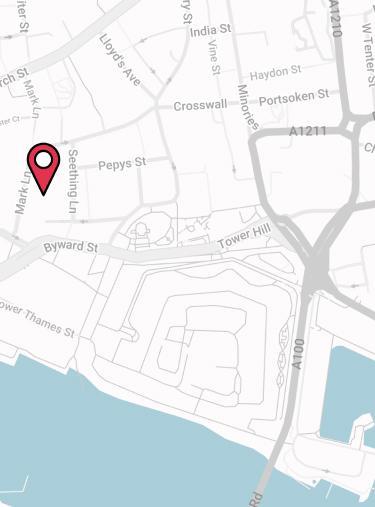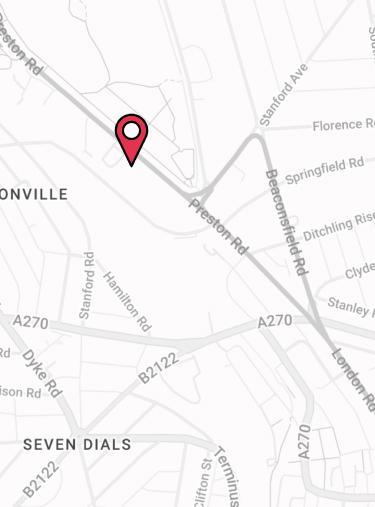
The 2025 Drewberry Individual Protection Survey
Welcome to the latest edition of the Drewberry Individual Protection Survey. The results are in for 2025, and we’ve got a lot to unpack.
We surveyed over 1,000 UK adults across key demographics to uncover public understanding and sentiment towards protection insurance. The results are revealing – and in some cases, concerning. They expose widespread knowledge gaps, misplaced assumptions, and missed opportunities for individuals to secure the financial safety nets they urgently need.
The Headlines
- 🐕 Cars, homes and pets are better protected than their owners
Over 1 in 3 UK adults (36%) have no personal protection in place — including no Life Insurance, Income Protection, Critical Illness Cover or Private Health Insurance - 🛟 Only 1 in 11 Brits are protected against income loss
Despite 41% relying on sick pay to get them through periods of illness, 24% don’t even know how much they’d be entitled to. And as less than one tenth (9%) have Income Protection, this leaves a worrying gap in financial security - ⚖️ People overestimate cost of protection
More than half of people think protection insurance is far more expensive than it really is. On average, people overestimate the cost of Income Protection by 63% - 🪦 Many could leave families exposed to high IHT bills
90% of people could saddle their loved ones with a large Inheritance Tax bill, simply due to a Life Insurance admin oversight. Just 10% say their policy is written into trust, while over a third (34%) aren’t even sure, putting payouts at risk of delay, tax, or going to the wrong people - 📅 1 in 6 couldn’t last a month without their main income
16% of people said they would run out of money within four weeks if their household’s main income stopped, with 1 in 20 surviving just a week or less. A further 10% aren’t sure how long they could cope, highlighting widespread financial uncertainty - 🫴 People vastly underestimate protection insurance payouts
Many adults significantly underestimate how often insurers pay out. 48% believe that fewer than half of Income Protection claims are successful, and over a third (36%) say the same for Life Insurance, despite real-world payout rates of 80–95% - 🤕 Only 4 in 10 adults feel financially protected
While 41% believe they have adequate cover in place, a worrying 6 in 10 either know they’re underinsured (37%) or simply don’t know (23%). It reveals a major confidence gap in how people would cope financially if they lost their income for six months or more.
Top Stories From the Report
From Cars to Gadgets, We Protect the Things We Own – But Not Ourselves
Whether it’s cars, homes, pets, or gadgets, we readily insure the things we own, love, and rely on. But when it comes to protecting ourselves (our health, income, and ability to keep life moving), Brits are looking the other way.
Our 2025 survey found that just 1 in 11 Brits have Income Protection, only 38% hold Life Insurance, and a mere 15% have Critical Illness Cover. Even fewer have Private Health Insurance or Health Cash Plans. These are the policies that can provide life-changing financial support when the unexpected happens, yet awareness and uptake remain worryingly low.
This lack of personal protection reveals a major blind spot in financial planning, shaped by misconception. Cost is misunderstood, risks are downplayed, and far too many people are assuming that something (or someone) will catch them if things go wrong. But when income stops, or illness strikes, that safety net can vanish leaving families facing tough decisions, missed mortgage payments, and stress at a time when peace of mind matters most.
In the sections that follow, we’ll unpack these misconceptions and look more closely at what the survey data reveals about awareness, attitudes, and the real barriers to getting covered.
Only 1 in 11 Brits are Protected Against Income Loss
The first and most sobering finding is that just 1 in 11 UK adults have Income Protection Insurance, leaving the vast majority dangerously exposed should illness or injury prevent them from working – relying on savings, potentially inadequate sick pay, or help from friends and family.
| How well-protected are Brits? | |
|---|---|
| 🔓 37% don’t have enough cover to support periods of no work |
🤒 41% are relying on employer sick pay during periods of illness, but 24% don’t know what they’re entitled to |
| 🫰 Affordability is the top reason for not getting insurance, but most don’t know what it actually costs |
🤷 Income Protection is the least held personal protection insurance, with only 9% having a policy, and the majority unaware it even exists |
Getting a Mortgage is the Top Catalyst for Buying Protection
Among those who had taken out Income Protection, we wanted to understand what prompted them to do so. The results show that getting a mortgage is the primary trigger for buying protection, followed by having a child and moving jobs. It makes sense that key life events prompt us to take measures to protect ourselves.
But if only 9% of UK adults have Income Protection, that raises bigger questions:
- What about everyone else?
- How are they protecting their mortgage if illness or injury stops them from working?
- Are people still going without the cover that could help them keep their home if their income stops? Or, for that matter, help them pay the rent?
Do Renters Risk Being Financially Exposed?
While our survey didn’t specifically ask about renters, national data shows that 19% of UK households are privately rented. Many renters face similar, if not greater, financial pressures compared to homeowners, but aren’t experiencing the same cues to seek protection.
With rents up 9.2% in the past year, averaging £1,369 per month, and household credit card/loan debt topping £8,117, renters are increasingly vulnerable. And yet, they could be the least likely to have cover in place. This highlights a need to separate aspects of protection from property ownership in public messaging. Everyone, regardless of whether they rent or own, relies on their income. And that income deserves protection.

It’s not just homeowners who are financially exposed. Renters also depend on a steady income to meet their monthly obligations, but often without the life events that prompt people to consider protection in the first place.
Whether it’s rent or a mortgage, regular outgoings don’t stop if your income does, which is why protection matters
Samantha Haffenden-Angear
Independent Protection Adviser
Why Familiar Fallbacks Fall Short
Even more concerning is the number of people without Income Protection who believe they could manage financially by relying on alternative options, such as employer sick pay, personal savings, or help from family and friends.
These fallbacks often aren’t as secure as they seem. Many people don’t fully understand the limits of what they’re relying on. Few stop to consider how long that support would actually last, or how quickly their savings could be wiped out by everyday expenses.
For example, 41% of respondents said they’d turn to employer sick pay if they were off work for six months or more…..
…But our survey also revealed that 24% don’t know what that entitlement actually is – and for many, it’s little more than Statutory Sick Pay at £116 per week.

It’s really hard to plan properly if you don’t actually know what support you’ve got in place, or if you’ve got anything at all.
Many people assume they’ll be covered by sick pay or savings, but they’ve never looked into the details. And without that clarity, it’s difficult to put the right protection in place to give you real financial security.
Darren Jaynes
Independent Protection Adviser
Millions Admit They’re Unprepared — Yet Do Nothing
With Income Protection being one of the least-held insurance products, it’s no surprise that 37% of respondents admit they don’t think they have enough cover to support themselves if out of work for six months or more. But this isn’t translating into action.
This figure is startling given the central role income plays in every facet of our lives. Rent or mortgage payments, bills, childcare, groceries, and loan repayments all depend on one key factor: the ability to work and earn. And yet, the vast majority of Brits remain exposed to the financial fallout of long-term illness or injury.
This misplaced confidence in perceived backup options is one of the biggest threats to financial resilience in the UK. It’s a classic case of overestimating what’s available, underestimating what’s needed, and misunderstanding what’s possible.
What’s Stopping People From Getting Covered?
Dig deeper into our data, and you discover that Income Protection insurance is often misunderstood or completely unknown. After cost, the second most cited reason for not having Income Protection was simply: “I didn’t know it existed.”
This highlights an issue with industry communication, and reveals an opportunity for advisers and providers to bridge the gap. For many, Income Protection could be the difference between maintaining their lifestyle and facing financial freefall. But without education and visibility, it remains overlooked.
According to consumer group Which?, most people of working-age should consider some form of Income Protection.
Income Protection Cost Assumptions Are Wildly Inaccurate
Affordability was the most common reason given for not having cover, yet most don’t actually know what it costs. Even when people are aware of the product, misconceptions about the cost of Income Protection often prevent them from taking the next step.
When asked how much they thought a £1,500/month income protection policy would cost for a healthy 35-year-old non-smoker, the average guess was a monthly price of £58.43. In reality, this would be around £35.81 (depending on individual circumstances) – an overestimation of almost 63%!
This staggering range reveals a profound lack of clarity. Many assume protection is prohibitively expensive, when policies can often be tailored to fit a range of budgets, with variables such as deferred period, term length, and benefit level all adjustable to keep premiums affordable. In some cases, cover can cost less than a gym membership or a weekly takeaway. Read more about the cost of Income Protection Insurance.
People Wrongly Believe Income Protection Doesn’t Pay
It’s not just cost that people underestimate either, many also have little idea how often Income Protection claims are actually paid. In our survey, 39% of respondents believed that fewer than a quarter of claims are successful. Another 19% thought only 26–50% are paid.
In reality, 97.9% of Income Protection claims were paid out in 2024, according to the ABI — a steady high. The average payout was £18,700, offering real support to people unable to work due to illness or injury.
Only 23% of people in our survey correctly guessed that more than three quarters of claims are paid. This gap in understanding may be stopping people from getting cover they can actually rely on. The stats show that Income Protection pays out, and it helps people stay financially afloat when life takes an unexpected turn.

With so many factors and options to consider when buying Income Protection, we know it can quickly become overwhelming.
Our team of specialists are here to help ensure you buy the right policy for your needs. We’ll search the UK market on your behalf to find the most competitive deal. Compare quotes to get started.
Rauri Taylor
Independent Protection Adviser
Income Loss: The Lowdown
The data paints a stark picture. With only 1 in 11 UK adults holding Income Protection Insurance, millions could be financially vulnerable if illness or injury stopped them from working.
Many people plan to rely on employer sick pay, yet nearly a quarter aren’t sure what that actually entitles them to. Others may fall back on savings, but it’s not always clear how long those would realistically last. The gap between what people think they can rely on and what they actually have in place could leave them exposed when they need support the most.
Income Protection is one of the most overlooked personal insurance products, yet it’s often more affordable than people realise, and highly flexible. Policies can be shaped to suit different budgets, needs, and lifestyles, offering a vital layer of financial security when it’s needed most.
Need Help?
At Drewberry, our advisers know the market inside out. We’re here to cut through the complexity, show you what’s possible, and help you build a plan that gives you real peace of mind.
📞 Call 02084327333 or email help@drewberry.co.uk to speak with a friendly adviser and take the first step in protecting what matters most: your income.
Income Protection Client Stories
12% Have No Idea How Their Loved Ones Would Survive Financially if They Passed Away
Life Insurance is the protection product people are most likely to have bought, yet fewer than 4 in 10 adults hold a policy and many remain unclear on how their family would cope financially without them should the worst happen.
| How prepared are Brits for the worst? | |
|---|---|
| 😨 12% are clueless as to how their loved ones would survive financially |
💰 90% either don’t have or don’t know if their Life Insurance policy is written into trust |
| 😲 People overestimate the cost of Life Insurance by 400% |
|
Only 38% of UK Adults Have Life Insurance
While Life Insurance is the most well-known personal protection product, ownership remains low, with only 38% of adults holding a policy. Even more troubling is the lack of clarity many have about what would happen if the worst occurred, 12% of respondents admitted they have no idea how their family would cope financially in the event of their death.
56% Could Leave Families Exposed to High Inheritance Tax Bills
56% of Life Insurance holders say they haven’t written their policy into trust (crucial for tax-efficiency), and a further 34% aren’t even sure. Without a trust, a Life Insurance payout may be subject to inheritance tax (IHT) or lengthy probate delays.
Seeing as 26% said their payout is the main way they’d support their family if they passed away, it risks reducing or delaying the very funds families are relying on in their darkest hour.
It’s another example of how poor understanding, not poor intentions, is putting families at risk. Writing a policy into trust is often free and easy with advice, but not enough people know how to do it.

Writing Life Insurance into trust may sound complicated, but it’s something we help people with on a daily basis. It only requires a few signatures on a couple of forms, or you can even do it online. Ask your adviser whether you’d benefit from a Life Insurance trust.
Danny Gill
Independent Protection Adviser
People Overestimate the Cost of Life Insurance By 400%
It’s clear there’s a lack of understanding across the board when it comes to the perception of insurance costs. As with Income Protection, affordability was the top reason for not taking out Life Insurance.
But again, there are misconceptions around cost. When asked to guess how much a Life Insurance policy would cost a healthy 35-year old non-smoker (payout of £250,000), the average guess was £52.97. In reality, the policy cost would be closer to £10.59 per month (depending on individual circumstances).
Critical Illness Cover Is a Missing Link in Protection Planning
Despite a growing public conversation about health risks, Critical Illness Cover (CIC) remains dramatically underutilised. While it’s often purchased in conjunction with Life Insurance, our survey found that only 15% of UK adults have it in place – a worrying figure given the financial and emotional toll a serious illness can cause.
Critical Illness Insurance provides crucial financial support at a time when individuals and families need it most, paying out a lump sum upon diagnosis of a specified serious illness such as cancer, heart attack, or stroke. This lump sum can be used for anything: paying off a mortgage, covering lost income, funding specialist treatment, or simply maintaining day-to-day living standards during recovery.
Most Life Insurance plans have the option of including Critical Illness Cover. Should you suffer a serious illness, there are often lifestyle changes to make (such as reduced working hours, stopping work completely, or home modifications) which can have a considerable impact on your finances. This is where Critical Illness Cover can step in to help. Compare quotes to get started.
People Don’t Trust Insurers to Pay Out
Many of our survey respondents have little idea how often Life Insurance claims are actually paid. In our survey, more than a third believed that fewer than a quarter of Life Insurance claims are successful. Another 17% thought only 26-50% are paid.
In reality, 96.5% of Life Insurance claims were paid out in 2024, according to figures from the ABI and GRiD. The average payout was £79,703, offering real support to families in their darkest hours. This gap in understanding may be stopping people from getting cover they can actually rely on.
Life Cover: The Lowdown
This research exposes a significant gap between awareness and action when it comes to Life Insurance. While many people recognise the importance of protecting their family, too few have a policy in place, and even fewer have it properly structured.
Whether it’s not having cover at all, failing to write it into trust, or vastly overestimating the cost, these misconceptions could leave loved ones financially vulnerable at the worst possible time.
To truly protect the people who matter most, it’s not enough to simply buy Life Insurance — it must be affordable, well-understood, and correctly set up. That means clearer communication, greater financial education, and timely advice. Because in the moments that matter, it’s not just the payout that counts, it’s ensuring it reaches the right hands, at the right time.
Health Insurance Is a Misunderstood Opportunity
In a time when the NHS is under unprecedented pressure, one might assume that demand for Private Medical Insurance (PMI) and alternative health cover would be surging. But our data tells a different story.
| How do people feel about Health Insurance? | |
|---|---|
| 🩺 Only 21% have Private Health Insurance |
|
| 😞 Only 4% have a Health Cash Plan, despite it being an affordable alternative |
💸 Cost is the biggest reason for not buying |
Cost Is the Biggest Barrier
Despite growing strain on the NHS, including 53% of respondents reporting treatment delays, Health Insurance uptake remains low. Cost is the biggest reason, followed by 29% feeling the NHS is sufficient, and 10% having it through their employer.
On average, respondents overestimated the cost of a Health Insurance policy by 21% (guessing around £40), whereas a basic policy can cost around £33.
There’s clearly a disconnect between frustration at the NHS waiting times and resistance to having Private Medical Insurance. Health Insurance can reduce the strain on our cherished health service, helping to tackle medical issues before they become larger problems.

We’re very fortunate in the UK to have the NHS, but it’s come under increasing strain in recent years. Private Health Insurance doesn’t replace the NHS (especially in areas such as emergencies and chronic conditions), but is instead designed to supplement the NHS and speed up your care for eligible acute conditions. Compare quotes to get started.
Alex Weir
Independent Protection Adviser
Cash Plans Are Underutilised
There are affordable and flexible alternatives to Private Medical Insurance, such as Health Cash Plans, which offer reimbursement for routine health expenses such as optical, dental, physiotherapy, and more. These plans are cost-effective and ideal for individuals seeking some level of health support. But only 4% of respondents currently have one, making it one of the most underutilised health protection products on the market.
People feel the pain of NHS delays, but they don’t connect that pain to actionable, affordable solutions. Whether it’s Health Insurance or a Health Cash Plan, many are simply unaware that these options exist, or how much value they could provide.
If you’re considering pay-as-you-go private treatment, a surgical procedure (such as a hip or knee replacement) can cost more than £10,000 just for the operation, and that’s before you add x-rays, scans and follow-up appointments. Having insurance in place provides access to faster treatment in top facilities via affordable monthly payments.
Health Cover: The Lowdown
Health cover in the UK isn’t just underused, it’s often not considered at all. Despite widespread frustration with NHS waiting times, our findings show that most people are still overlooking viable alternatives like Health Insurance or Health Cash Plans.
Cost remains the biggest barrier, but it’s clear that awareness is just as much of a problem. Many individuals simply haven’t explored what’s available, or assume it’s unaffordable without ever checking. That’s a missed opportunity, especially when even low-cost plans can provide meaningful support with everyday healthcare expenses.
To close the gap, we need to rethink how health cover is positioned. It shouldn’t be seen as a luxury for the few, but as a practical tool for the many, helping people access faster care, reduce financial stress, and stay in control of their health.
Our friendly consultants know the market inside-out, and can find you the right insurance at the right price. Email help@drewberry.co.uk or call 02084327333 to chat through your options.
84% Are Leaving Themselves Exposed When Buying Insurance Products
When it comes to buying protection, only 16% of people said they would use a financial adviser. This preference for non-advised routes prioritises price over personalisation, leaving people vulnerable to choosing policies that may not suit their needs, or failing to understand the full benefits of what they’re buying.
| How protected are insurance purchases? | |
|---|---|
| 🏃♀️ 22% would go directly to insurers, and the majority (31%) prefer using price comparison websites |
🙅♀️ 55% believe their insurance policies don’t include additional services, and 27% aren’t even sure |
Majority Would Bypass Independent Financial Advice
When it comes to purchasing protection, many people are bypassing independent advice. Just 14% said they’d consult a financial adviser before buying an insurance product, while a larger 22% would go directly to insurers, and the majority (31%) would use a price comparison site.
It’s no surprise then that 60% admit to not having (or not knowing if they have) adequate insurance in place. Non-advised purchases lack the customisation needed for effective protection. Buying the cheapest policy on a comparison site may be “penny-wise but pound-foolish”, especially when income and family wellbeing are at stake.

When you speak to an independent adviser, the responsibility lies with them to make sure the policy is fit for purpose. It’s a protected sale that gives you peace of mind.
Samantha Haffenden-Angear
Independent Protection Adviser
82% Are Missing Out on the Hidden Gems in Their Insurance Policies
Perhaps one of the most disheartening findings from our survey is how many people don’t realise the additional benefits that often come with their insurance policies. More than half (55%) said their policies had no extras, and 27% weren’t sure.
From Virtual GPs and mental health counselling to legal support and wellbeing tools, modern protection products often include services that add daily value beyond the worst-case scenario. Yet these benefits go underused, largely because consumers simply don’t know they exist. Nearly all protection products on the market come with benefits such as:
- Virtual GP access, often 24/7 and available within hours
- Second medical opinions from specialists
- Mental health counselling and wellbeing support
- Legal and financial advice helplines
- Probate support
- Nutritional and fitness guidance
- Rehabilitation services for injury or illness recovery.
These benefits can significantly enhance wellbeing and offer early intervention, potentially preventing longer-term health issues. Yet without awareness, these features go underutilised, leaving policyholders short-changed and undervaluing the very protection they’ve paid for. It’s another reason why clear communication and adviser-led support are so vital in the insurance journey.
Comparison websites can be very useful to compare quotes, but often lack an in-depth review of the policy terms. It doesn’t cost you anything to set up your policy through our Drewberry advisers, and you’ll have peace of mind knowing that what you’ve bought is suitable for your unique situation.
Purchasing Protection: The Lowdown
Non-advised purchases prioritise price over personalisation. Yet the cheapest policy isn’t always the most effective. Without tailored advice, many buyers don’t fully understand what their cover includes, how it fits their unique needs, or what additional services are available.
The result? 60% admit they’re unsure whether their insurance is adequate, and 55% believe their policies don’t include any extra support, while 27% aren’t even sure. This underlines a systemic lack of awareness, not just about the products themselves, but also about the value they can provide beyond financial protection.
Ultimately, protection insurance is more nuanced than many realise, and going it alone can leave people unprotected in ways they don’t anticipate. Seeking guidance from an independent adviser helps ensure that cover is suitable for needs and budget, along with empowering individuals to get the most from their policy (i.e. highlighting their additional benefits). Give us a call on 02084327333 or email help@drewberry.co.uk for independent, fee-free advice.
Individual Protection in 2025: Our Conclusion
Our survey paints a picture of a nation underprotected, underinformed, and overly optimistic about what safety nets exist. Just 1 in 11 Brits are protected against income loss, and 37% admit they don’t think they have enough cover for even a six-month absence from work.
There’s a real lack of understanding of the products available, and an overestimation of the costs while underestimating the risks. Worse, many don’t seek advice or guidance when purchasing cover, further compounding the issue.
By understanding the real reasons people aren’t getting cover, whether it’s cost confusion, complexity, or a lack of trust, we can build better communication, products, and support systems. We insure our phones, our holidays, and our pets. It’s time we started protecting the ultimate assets, our health, our income, and our families.
Why Speak to Us?
When it comes to protecting yourself and your finances, you deserve first-class service. Here’s why you should talk to us:
- There’s no fee for our service
- We’re an award-winning independent insurance broker, working with the leading UK insurers
- You’ll speak to a dedicated specialist from start to finish
- 4100 and growing independent client reviews rating us at 4.92 / 5
- Claims support when you need it most
- We’re authorised and regulated by the Financial Conduct Authority. Find us on the financial services register.
Contact Us
125-135 Preston Road
Brighton
BN1 6AF
Cookies
Drewberry™ uses cookies to offer you the best experience online. By continuing to use our website you agree to the use of cookies including for ad personalization.
If you would like to know more about cookies and how to manage them please view our privacy & cookie policy.





